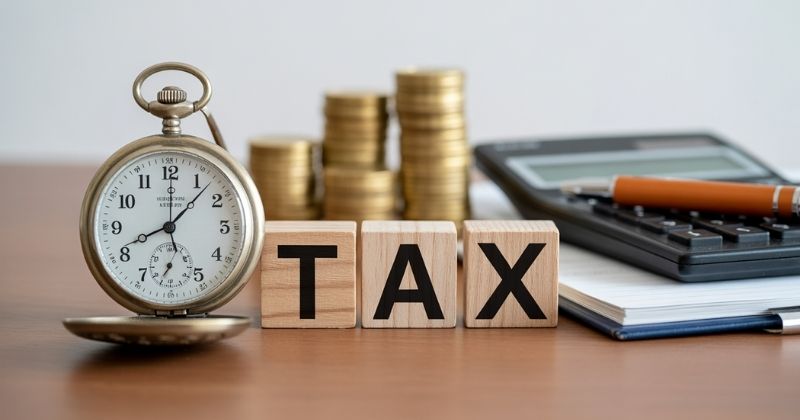
Affluent South Africans relocating abroad are finding themselves under tighter scrutiny as the South African Revenue Service (SARS) steps up its enforcement actions and narrows the availability of exemptions. The tax authority has become increasingly assertive in pursuing compliance among those with substantial incomes, prioritising revenue collection from high-earning individuals. Many financial experts note that this reflects a global trend as tax authorities around the world, from the UK to Australia, are cracking down on offshore wealth to close revenue gaps.
Key Takeaways
- Wealthy taxpayers under intensified scrutiny: SARS is tightening enforcement on affluent South Africans, especially those moving abroad, ensuring they declare tax residency changes and comply fully with global income reporting requirements.
- Formal exit is critical to avoid tax traps: Many high earners fail to formally cease tax residency, leaving them liable for worldwide taxation and potential capital gains on global assets through the deemed disposal rule.
- Professional planning is no longer optional: With SARS widening its reach to offshore assets, crypto holdings, and high-wealth individuals, expert tax advice, proper documentation, and timely applications for exemptions or DTAs are essential to avoid penalties and double taxation.
About Arcadia Finance
Find the right loan quickly and easily with Arcadia Finance. Compare offers from 19 trusted lenders at no cost, all approved by South Africa’s National Credit Regulator. Fast, transparent, and tailored to your needs.
Millionaire Exodus Raises Red Flags for South Africa’s Tax Base
The 2025 Henley Private Wealth Migration Report projects that approximately 250 dollar-millionaires will emigrate from South Africa during 2025. Despite this wave of outward migration, the number of individuals who officially terminate their tax residency with SARS continues to decline, indicating a gap between physical departure and formal tax compliance. Interestingly, South Africa ranks among the top 10 countries globally for millionaire outflows, a figure often used as an indicator of economic confidence and policy stability.
Tax specialists from consulting firms have observed that many wealthy citizens relocate abroad without updating their tax status with SARS, exposing themselves to serious consequences. Remaining on the SARS register as a tax resident obliges such individuals to pay taxes on global income, regardless of where they reside or generate that income.
This can lead to double taxation nightmares, especially when foreign income is subject to local taxes as well.
The 2025 national Budget reinforced the pivotal role of top-earning taxpayers in sustaining South Africa’s fiscal framework. In the 2024/25 financial year, individuals earning above R1 million per annum made up a mere 6.7% of all registered taxpayers, yet contributed a substantial 46% of total personal income tax revenue. By 2025/26, this proportion had shifted further, with 7.3% of taxpayers in the same income group shouldering nearly half, 48.6%, of all income tax collected in the country. Economists often warn that such a narrow tax base is a ticking time bomb, as a small elite carries the burden for millions, a situation vulnerable to even modest shifts in migration or compliance.
Experts interpret these figures as evidence of an exceptionally narrow but critical tax base that depends heavily on South Africa’s highest earners. Consequently, SARS’s renewed attention on those departing the country is viewed as a direct response to concerns over potential revenue erosion. The Treasury is also believed to be studying models from Canada and Singapore, where tax exit regimes are stricter and exit charges higher.

The High-Wealth Focus Intensifies
SARS Commissioner Edward Kieswetter has revealed that the High Wealth Individual Unit (HWIU) has identified about 2,800 South Africans with assets exceeding R50 million, collectively controlling an estimated R150 billion in offshore holdings. This elite segment of taxpayers represents both a key revenue source and a compliance challenge for SARS. Some insiders claim the true number could be significantly higher when counting those using layered trust structures or foreign investment vehicles, a loophole SARS is now probing with forensic precision.
Although migration figures remain robust, official data shows a decline in the number of formal tax exits. In 2014, over 4,100 individuals earning more than R1 million declared a change in tax residency. By 2023, this figure had dropped sharply to 1,722. Such statistics suggest that many high earners may be neglecting the formal process of ceasing tax residency, leaving them open to unexpected tax liabilities later.
Failure to properly cease residency can also trigger capital gains taxes on global assets, a ‘deemed disposal’ that can hit departing taxpayers with sudden multimillion-rand bills.
Industry analysts warn that SARS is no longer adopting a lenient stance. Instead, the agency has been sending increasingly detailed requests for information, ranging from business financials and rental earnings to capital gains and cryptocurrency records, signalling a broadening scope of enforcement. Crypto investors, in particular, are under the microscope, as SARS now collaborates with major international exchanges to track undeclared holdings.
Leaving the Country No Longer Means Escaping SARS
For South Africans relocating abroad, the notion that tax obligations end at the border is now outdated. SARS expects individuals to take deliberate steps to either reduce their tax exposure or end their tax residency through proper legal channels. This shift reflects a more aggressive global tax environment where transparency agreements between countries allow revenue authorities to share banking and investment data seamlessly.
One available relief mechanism is the Section 10(1)(o)(ii) foreign employment income exemption. This provision enables South African residents employed abroad to prevent double taxation, provided they meet the stringent criteria. To qualify, a taxpayer must spend more than 183 days outside South Africa within a 12-month period, including at least 60 consecutive days. However, this exemption applies strictly to employees, excluding independent contractors and self-employed individuals. A frequent pitfall is assuming remote freelance work abroad qualifies, but it does not. SARS has repeatedly disallowed such claims, leading to unexpected back taxes and penalties.

The Path to Ceasing Tax Residency
Those aiming for a definitive separation from South Africa’s tax system must undertake the formal process of ceasing tax residency. This involves demonstrating that the person is no longer ordinarily resident in the country. Once this status is successfully changed, the individual becomes liable only for income derived from South African sources, such as rent from local properties, while foreign earnings fall outside the tax net. However, experts caution that SARS will often request proof such as foreign residence permits, long-term leases, or school enrolments to ensure that the move is genuine and not a paper exercise.
Tax experts note that South Africa’s extensive network of double taxation agreements (DTAs) can also provide valuable protection. These treaties help prevent individuals from being taxed twice on the same income by two jurisdictions. Nevertheless, utilising a DTA correctly requires formal application to SARS and adherence to its procedural requirements. A DTA does not necessarily mean a person has renounced South Africa as their home; instead, it is a mechanism that allows for fair tax allocation between countries. Many expats mistakenly assume that living in a DTA country automatically protects them, but it does not. The treaty benefits must be formally invoked, usually via a certificate of residence from the foreign jurisdiction.
Planning Is No Longer Optional
As SARS expands its enforcement activities and continues to focus on wealthy taxpayers, professional tax planning has become essential. Whether an individual intends to use the foreign employment exemption, cease tax residency entirely, or rely on the provisions of a double taxation treaty, expert advice and thorough compliance are now non-negotiable for South Africans looking to safeguard their wealth while living abroad. Tax attorneys often suggest starting the process at least six months before relocation to avoid triggering retrospective penalties. They also warn that ignoring SARS correspondence while overseas can lead to frozen local assets or blacklisting with South African banks.
Tip: Always keep copies of travel records, tax filings, and foreign employment contracts. SARS often audits these years after departure, and documentation gaps can lead to assumptions of continued residency.
Before leaving, seek clearance on capital gains from shares, trusts, or property. The “exit tax” or deemed disposal tax is one of the most misunderstood, yet most painful, parts of leaving South Africa’s tax net.
Conclusion
South Africa’s growing millionaire migration underscores a pressing fiscal challenge as SARS tightens its grip on compliance and revenue recovery. While wealthy individuals continue to seek opportunities abroad, the declining number of formal tax exits reveals a widening gap between emigration and proper fiscal disengagement. As the nation’s tax base grows increasingly concentrated among its top earners, even minor shifts in compliance or residency could have outsized consequences for state finances. In this climate, both taxpayers and policymakers face a delicate balancing act — safeguarding individual mobility while preserving the integrity of the national revenue system.
Fast, uncomplicated, and trustworthy loan comparisons
At Arcadia Finance, you can compare loan offers from multiple lenders with no obligation and free of charge. Get a clear overview of your options and choose the best deal for you.
Fill out our form today to easily compare interest rates from 19 banks and find the right loan for you.

